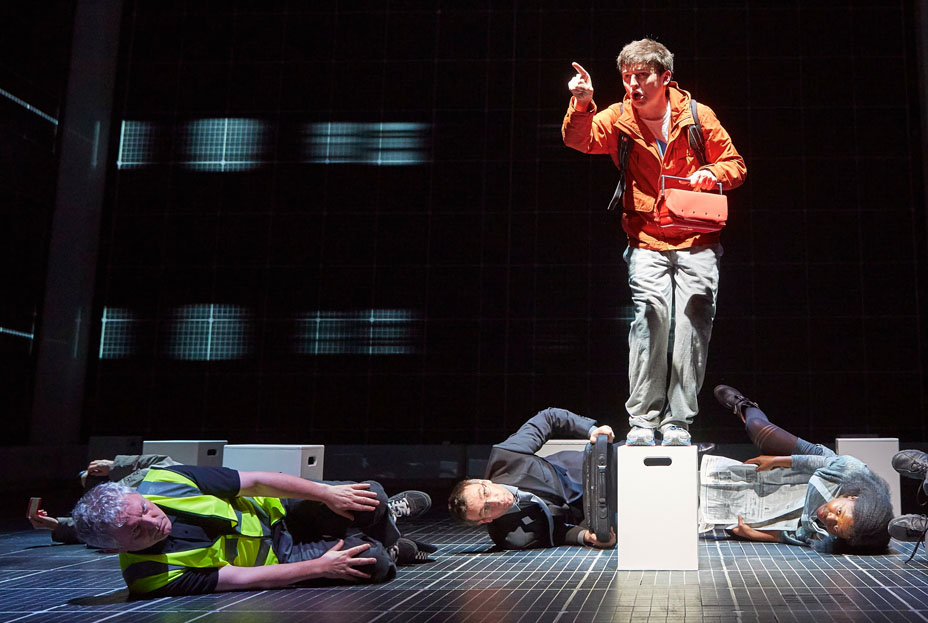
Like the recently much celebrated The Father, this is a play – one is tempted to say ‘celebration’ – of ‘the other’. Viewed through the otherwise inaccessible inner workings of what was once described as a ‘disturbed’, but we might now call, more accurately, ‘non-standard’, mind, Marianne Elliott has given us the picture of the world seen through eyes like ours yet processed in a particular way. She gives a cerebral book physical form; walking on the wall, space walking and a mind exploding with numbers when under stress – all there before your very eyes; the inner world as convincing as the physical one. So in another sense it is also a celebration of what theatre can do.
Part detective story, part road trip, part family drama and part psychological analysis with comic notes, the play defies easy categorization. It is a joint effort with everyone pulling their weight, starting with Simon Stephens’ clever stage adaptation of Mark Haddon’s book, through to the ‘box set with a difference’ of Bunny Christie which is brought to life by Finn Ross’s video design, music and sound by Adrian Sutton and Ian Dickinson, and Paule Constable’s lighting. A fine performance by Joshua Jenkins as Christopher Boone, the boy with Asperger Syndrome whom only a parent could love is the spine of the play. Physical, detailed, always on edge, a world within a world created; a complete and believable character, this is a performance which stays in the memory for all the right reasons.
Solid support comes in the form of the loving, but just about supporting and coping, dad, of Stuart Laing and the estranged and taken-for-dead-mum of Gina Isaac. The latter’s cry at the realisation of her husband’s deception had a truly despairing and tragic quality. Geraldine Alexander’s social worker/narrator is a welcome beacon of compassion and understanding giving the audience a steer as to where our sympathies should lie.
Unlike the National Theatre’s earlier play, Shaffer’s Equus, which was about a disturbed mind and the psychiatrist, Dysart’s jealousy of the boy’s inner, imaginative life, The Curious Incident of the Dog in the Night-Time has us consider a life without metaphor and stripped of the petty emotions that lubricate or irritate human interaction. Christopher’s is a brain without the standard filter. In an odd way then, it is a celebration of our own (there we are ‘them and us’ – easily done!) rich interior lives. How amazing are we that we do operate on a metaphorical level as a matter of course? How lucky are we to have the hard edges of an intractable, logical universe softened by our imaginations? Yet the play shows us how rich the life of ‘the other’ can be, albeit in ways difficult for ‘us’ to relate to, that is if we are not of a particularly mathematical bent.
The final positive message of the play is that it is not really a question of ‘us and them’, but rather of the varieties of humanity being on a continuum. Could anything be more positive? ★★★★★ Graham Wyles, reviewed at the Bristol Hippodrome on 5th August 2015

